Brexit 'still a bit of minefield' for businesses one year on
- Published
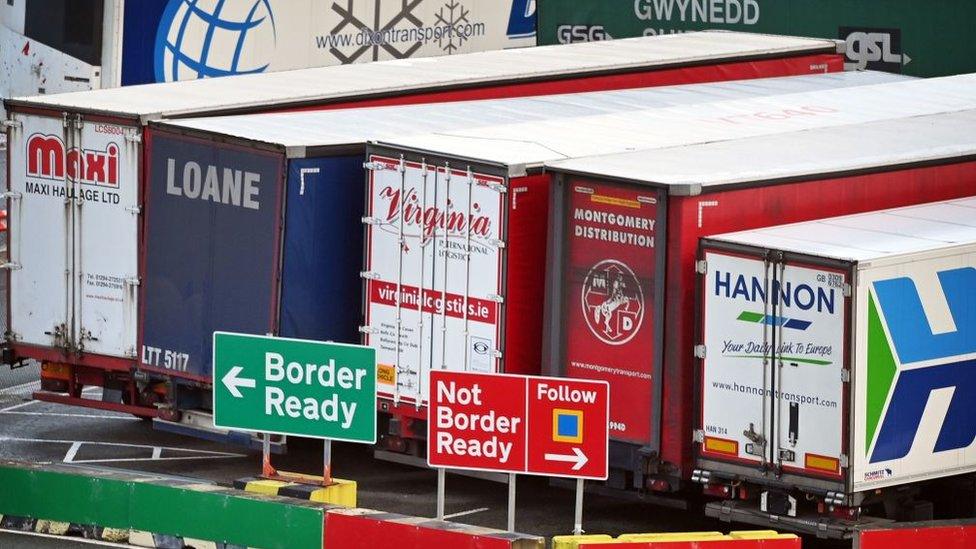
There were long delays for hauliers at the start of 2021
It's been hard work and "niggly" at times, but many businesses in the East of England say they have been able to cope with the first year of Brexit. The BBC has spoken to a few of them.
Britain formally left the European Union (EU) and its single market on 1 January 2021 and, since then, all goods entering or leaving the country are subject to border checks and paperwork.
After what the government called "teething problems" in the first few months, the predicted long delays at ports and mass shortages never really happened.
Some companies say they have prospered, but most who trade with the EU agree that things have become more complicated and time-consuming.
It has not been plain sailing and the debate about whether Brexit has been a good or bad thing continues.

'It is still a bit of minefield but I think we've solved it'
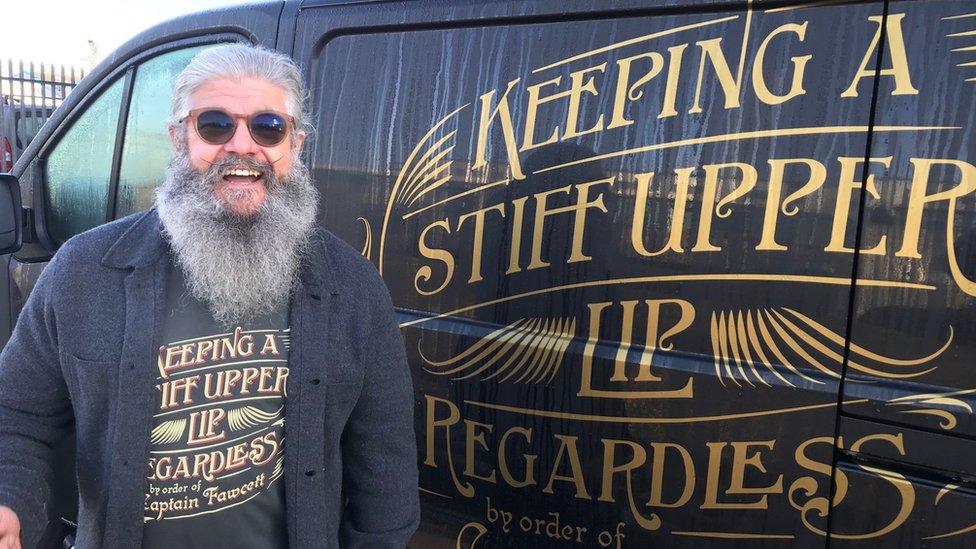
Richard Finney says Captain Fawcett is doing better now than a year ago
The owner of King's Lynn-based Captain Fawcett, which supplies gentlemen's grooming products around the world, said after some initial hold-ups, exports are up by 34%.
Some 78% of Richard Finney's orders go overseas and back in April he had shipments stuck in Spain, Poland and Germany. He said they were held up - sometimes for up to two months - by foreign customs due to the new paperwork requirements. He says that having customs' borders installed where they had not been before meant staff took time to understand the new rules.
He says things are now very different, hold-ups are rare and even though he has lost some European business due to customers being put off by the extra paperwork and charges, he has started to find new markets in India, China and further afield and is doing better now than a year ago.
As well as a rise in exports, the company has been named a Department of International Trade export champion.
"Those initial worries regarding delays to shipments getting in and out - in the main that is now sorted out," he says.
"We are no longer dealing with a single state (the EU) but 26 individual countries with their own nuances and requirements, so it is still a bit of minefield, but I think we've solved it.
"There are still some teething problems but things are a lot better. It is niggly but with the right attitude and the right information it can be overcome."

'It's ludicrous that we can't send goods within our own country'
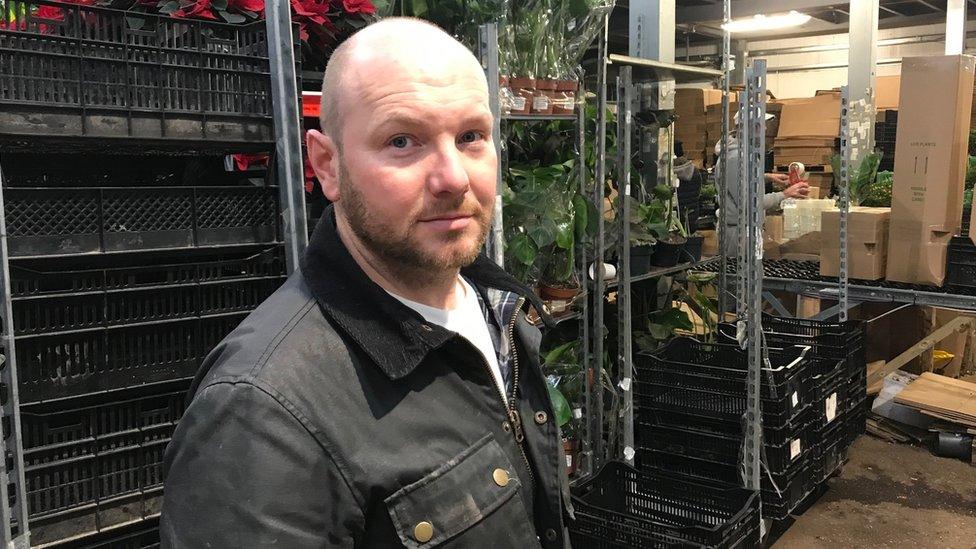
Chris Bonnett, who runs Gardening Express, says the Northern Ireland market has all but dried up
Chris Bonnett, who runs the Gardening Express a nursery and mail order plant sales business near Chelmsford in Essex, says he has lost between £250,0000 and £500,000 due to the collapse of the Northern Ireland market.
He says that market has all but dried up because couriers are "very nervous" about carrying goods over the Irish Sea due to the extra checks associated with the Northern Ireland Protocol.
"They don't want to have a truck held up for paperwork if something's not quite right or if an overzealous customs officer is doing their job, as that would potentially cause hours and hours of delays to thousands of parcels on that lorry," he says.
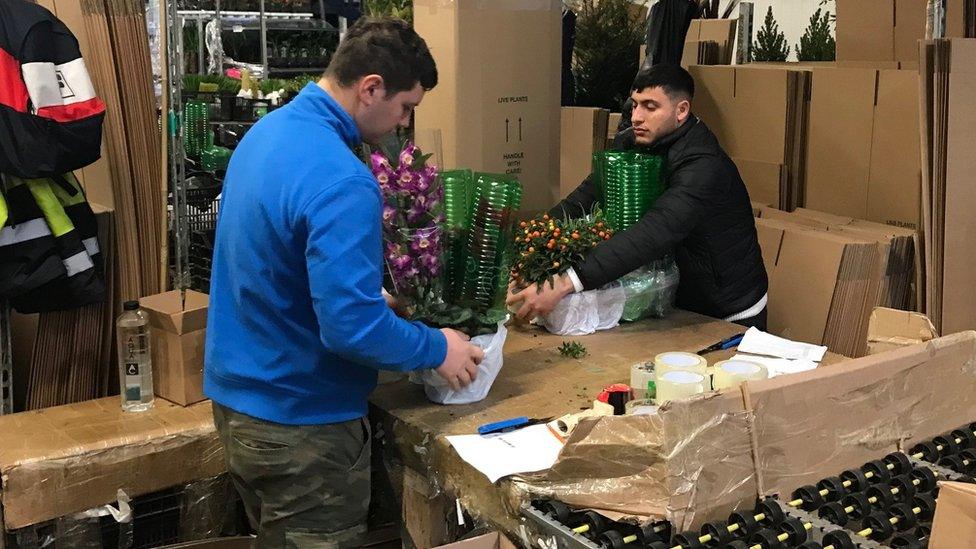
Mr Bonnett says he would be able to employ more people if the Northern Ireland situation was dealt with
At the same time, the company has not lost out financially because people spending more time at home due to lockdowns means the UK market has grown.
"We haven't felt the loss, but it's trade we're not taking [in Northern Ireland] which would allow us to employ more people here in England," he says.
"We really would like to have that trade and I'm sure the people of Northern Ireland would really like to buy the goods."
He adds he feels "a bit incredulous" about the whole situation.
"It's ludicrous that we can't send goods within our own country and it really needs someone to grasp the nettle and deal with the situation," he says.
"Someone's got to make the hard decisions and stop pussy-footing around because it's gone on for too long already and business is suffering [for] both larger corporations and small businesses like ourselves."

'It's not a terrifying thing anymore'
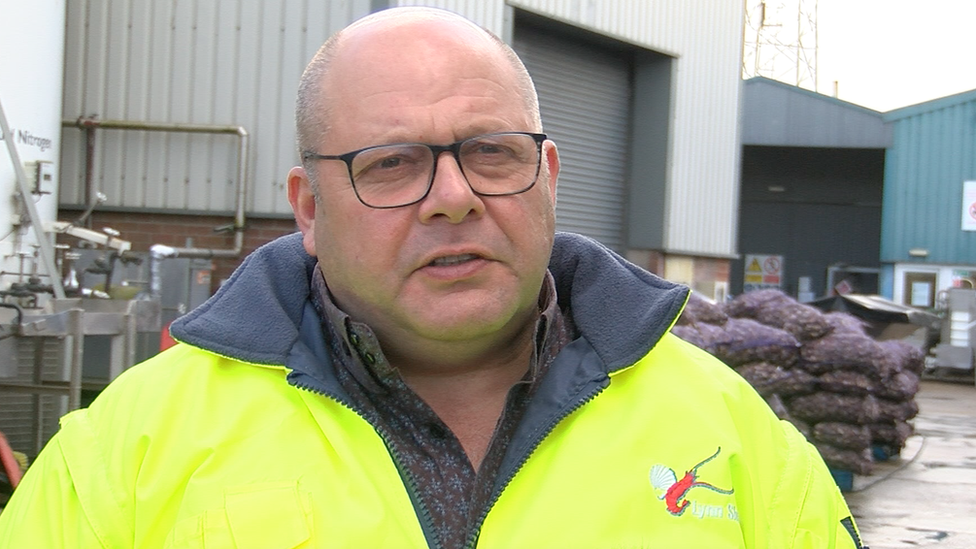
Stephen Williamson from Lynn Shellfish says "Brexit will be worth it in the long run"
Lynn Shellfish's first delivery of last year - 9.5kg of shrimp - was held at Rotterdam for five and a half days.
It exports more than 90% of the whelks, cockles and shrimp that it processes to Europe and the firm says all of its first few 2021 shipments to Europe were held up at foreign ports due to paperwork issues.
But now, the managing director of the King's Lynn company, Stephen Williamson, says lorries are going to Europe every few days without any problems.
"It was rough to start with but we've got used to it now," he says.
"We know what we have to do, it's not a terrifying thing anymore.
"Once you know what you're doing and you're doing it three or four times a week then you get used to it."
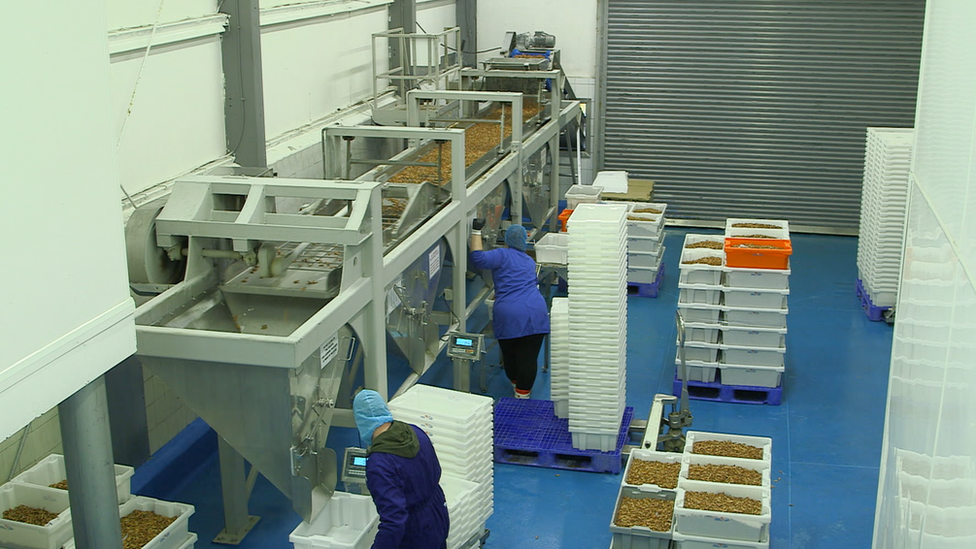
Lynn Shellfish exports more than 90% of the whelks, cockles and shrimp that it processes to Europe
An ardent pro-Brexiteer, Mr Williamson says that while the one piece of paper needed before Brexit has turned into about 40 or 50, "you have to make it work".
"You have to bend over backwards and jump through all the hoops, but we're still here, we've not lost any business so it's been worth it," he says.
He still thinks Brexit has been a good thing for Britain and that despite Covid, the economy has performed well against the Eurozone and the US dollar which is "a fantastic pointer that this country is going to grow".
"I chose Brexit, I've got to live with it but even after the problems [we've had as a company I know] I haven't made a mistake," he says.
"Brexit will be worth it in the long run."

New paperwork is 'going to cause a headache'

Nova Fairbank from Norfolk Chambers of Commerce warns that new paperwork requirements introduced on 1 January could cause problems
Chief operating officer for Norfolk Chambers of Commerce, Nova Fairbank, says most businesses have coped with all the new red tape in the first year, but it has been hard.
She warns that new paperwork requirements, delayed from last year and introduced on 1 January, could cause problems for firms trading with the EU.
"In the first few weeks there were some significant challenges where businesses were not anticipating having to have certain documents," she says.
"They didn't know where to find the information and their EU suppliers were, shall we say, not as helpful as they could have been in supplying the right paperwork."
She says that while they have "got to grips with" the "significant volume of paperwork", the 12-month transition period is ending and the paperwork is about to change again.
"Up until now you've been able to get away with not having the correct paperwork on time," she says.
"Now you will not be able to move your goods from the EU to the UK without having the correct paperwork.
"It's going to cause a headache for a lot of businesses."

Find BBC News: East of England on Facebook, external, Instagram, external and Twitter, external. If you have a story suggestion email eastofenglandnews@bbc.co.uk
Related topics
- Published2 February 2024
